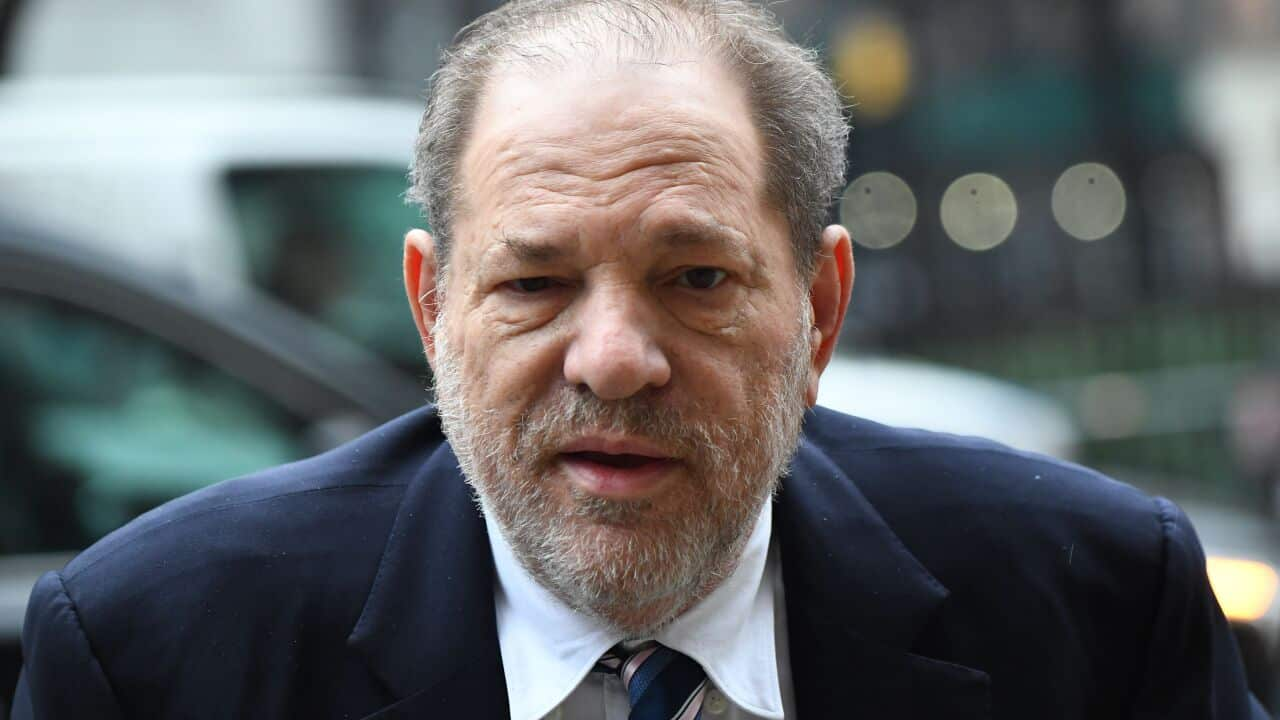Key Points
- A New York court has overturned Harvey Weinstein's 2020 conviction for sexual assault and rape.
- The court said the trial judge made a mistake by allowing women to testify who weren't part of the charges he faced.
- Weinstein is not expected to be freed immediately, as he also faces a separate 16-year prison term in California.
Harvey Weinstein's 2020 conviction for sexual assault and rape has been overturned by New York's highest court.
The New York conviction had been considered a milestone for , in which women accused hundreds of men in entertainment, media, politics, and other fields of sexual misconduct.
Here's why Weinstein's appeal was successful — and what will happen now.
What was Weinstein convicted of?
Weinstein was convicted in February 2020 in Manhattan of sexually assaulting former production assistant Miriam Haley in 2006, and raping aspiring actor Jessica Mann in 2013.
The charges on which he was convicted were first-degree sexual assault and third-degree rape.
Jurors acquitted him on other charges.
Following his conviction in New York, a civil trial awarded US$17 million ($26 million) to dozens of other women who had accused the former movie magnate of abuse.
The 72-year-old has denied having non-consensual sexual encounters with anyone.
Why was the ruling overturned?
In a 4-3 decision, the New York Court of Appeals said the trial judge made a mistake by letting women testify that Weinstein assaulted them, even though their accusations were not part of the charges he faced.
"The remedy for these egregious errors is a new trial," Judge Jenny Rivera wrote for the majority.
The New York appeals court also said the trial judge compounded its error by letting Weinstein be cross-examined on a broad range of "loathsome" conduct, including bullying and fits of anger toward associates, that portrayed him in a "highly prejudicial" light.

Harvey Weinstein's legal team welcomed his conviction being overturned. Source: AAP / Justin Lane
Judge Madeline Singas dissented, saying the decision "perpetuates outdated notions of sexual violence" and makes holding defendants accountable for sexual assault "significantly more difficult".
She also accused the majority of whitewashing the facts and continuing what she called a "disturbing trend" of overturning jury verdicts in sexual violence cases.
What has the reaction been?
Arthur Aidala, the head of Weinstein's legal team, called the decision a victory for his client and any person in the US charged with a crime, "no matter how popular or unpopular they are".
"From the bottom of our hearts, from our collective hundreds of years of experience, we knew that Harvey Weinstein did not get a fair trial," he told reporters.
"No one is above the law. But no one is below the law either."
The Silence Breakers, a group of women who banded together to report Weinstein's misconduct, called the decision "disheartening," adding that "this ruling does not diminish the validity of our experiences or our truth".
Actor Ashley Judd, one of Weinstein's accusers, called the decision "an act of institutional betrayal".
"The legal system has never served survivors in this country," #MeToo founder Tarana Burke told reporters.
"Because these brave women in this case broke their silence, millions and millions and millions of others found the strength to come forward," she added.
"That will always be the victory."

Actor Ashley Judd is among Harvey Weinstein's accusers.
Where to from here?
Weinstein also faces a separate 16-year prison term in California after being convicted there last year for the 2013 rape of an actor at a Los Angeles hotel.
Lawyers said that conviction was unlikely to be affected by the New York reversal, and Weinstein is now set to be transferred to a California prison.
Emily Tuttle, a spokesperson for Manhattan District Attorney Alvin Bragg, said prosecutors would do everything in their power to retry the New York case, adding they "remain steadfast in our commitment to survivors of sexual assault".
If you or someone you know is impacted by sexual assault, call 1800RESPECT on 1800 737 732, text 0458 737 732, or visit . In an emergency, call 000.











